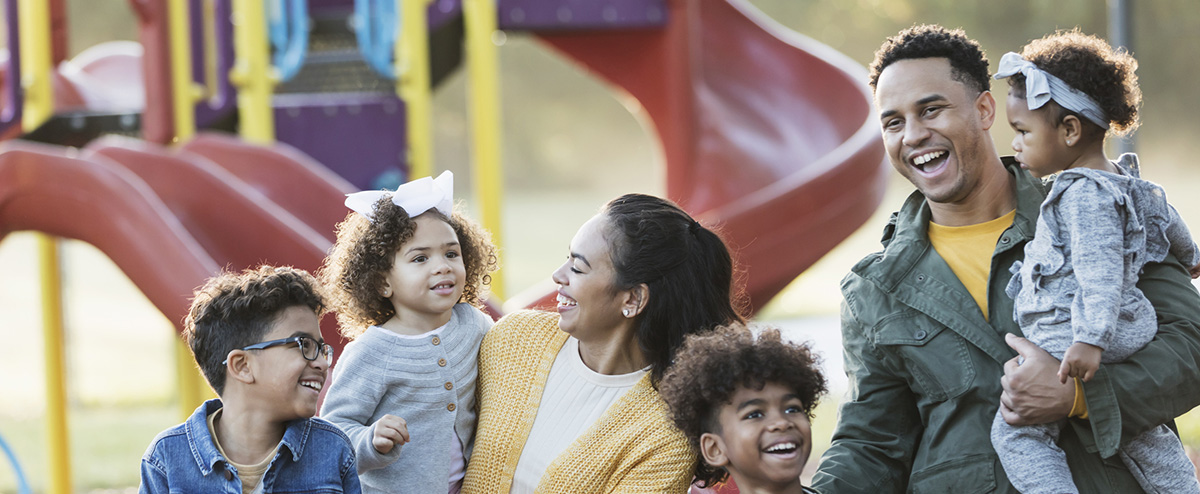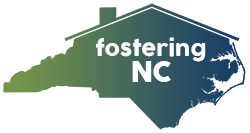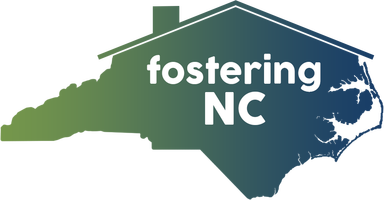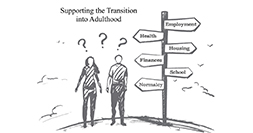Foster Care and Adoption Resources

Featured
Supporting the Transition into Adulthood
Supporting the Transition into Adulthood [UNC] Teaches strategies resource parents can use—including North Carolina’s LINKS goals and Transitional Living Plan—to help youth in foster care successfully transition into adulthood. Includes candid, practical suggestions from an experienced foster parent. (1 hr.)
Guardianship, Pathway to Permanence
New Course – This course provides North Carolina resource parents information about guardianship, which is a route to permanence for some youth in foster care. (1 hr.) Take course…
Suicide and Self-Injury in Children and Teens
This 1-hour course helps resource parents understand suicide and non-suicidal self-injury in children and adolescents and teaches them how to respond. Take course…
Promoting Brain Gains for Youth Emerging from Foster Care
This 4-minute video discusses adolescent brain development and ways child welfare systems inhibit or encourage opportunities for the successful transition to adulthood. To download the report this video is based on, click here.
Additional Resources
Supporting Permanence
This is the national photo listing service for children awaiting adoption across the United States.
http://www.adoptuskids.org/
Supports, educates, inspires, and advocates so adoptive families thrive and every child in foster care has a permanent, safe, loving family.
https://www.nacac.org/
Visit this page to learn about the post-adoption resources the NC Division of Social Services makes available to North Carolina families.
https://www.ncdhhs.gov/divisions/social-services/nc-kids-adoption-and-foster-care-network/post-adoption-support-and
https://fosteringnc.org/wp-content/uploads/sites/13366/2021/10/Lifebook-Links.pdf
Concisely explains the difference between licensed and unlicensed kinship foster care, defines guardianship, and outlines the eligibility requirements for NC’s Kinship Foster Care and Guardianship Assistance Program (KinGAP).
Answers common questions about the important differences in North Carolina between unlicensed and licensed kinship foster care, legal custody, legal guardianship, and adoption.
https://www.americanbar.org/content/dam/aba/administrative/child_law/ParentRep/Reunification_Tip_Sheet.authcheckdam.pdf
https://www.healthychildren.org/English/family-life/family-dynamics/adoption-and-foster-care/Pages/Tips-for-Helping-Children-and-Teens-Before-and-After-Visitation.aspx
Parenting Kids in Care
Offers information on supports, the fundamentals of parenting kids in care, working with birth families, and adopting a child from foster child.
https://www.childwelfare.gov/topics/outofhome/resources-foster-families/
This site has a Reading Room that offers Guidebooks, Tip Sheets, and other resources on a wide range of topics, including working with birth parents and raising resilient children.
https://wifostercareandadoption.org/
In 2013 stakeholders from our state’s child welfare system developed this list of the knowledge, skills, and attitudes important to being a successful foster or adoptive parent. This list may serve as a helpful point of reference when thinking about your areas of strength and areas where you need more training or support.
A state-funded scholarship for up to 4 years of undergraduate study at NC public colleges and universities. Offered to qualified applicants who were adopted from the NC Division of Social Services foster care system after the age of 12, OR who aged out of NC DSS foster care at age 18. Also provides comprehensive student support, including mentors, care packages, and internships.http://www.ncreach.org
https://www.dhs.gov/sites/default/files/publications/blue_campaign_youth_guide_508.pdf
https://www.vpnmentor.com/blog/the-ultimate-parent-guide-for-child-internet/
https://www.nctsn.org/audiences/families-and-caregivers
This online resource library from the NC Pediatric Society contains tools for establishing and supporting medical homes for infants, children, adolescents, and young adults in foster care. http://www.ncpeds.org/?page=FHNC
The following handouts from the library may be of particular interest to resource parents:
- Guidance for Foster/Kinship Caregivers
- Foster Care Well Child Check-Up
- Keeping Children in Foster Care Healthy
- Parenting After Trauma (A Guide for Foster and Adoptive Parents)
- Medication Safety
- 5 Tips to Help Your Child Sleep
- Helping Your Child in Foster Care Handle Transitions
- Foster Care Dictionary
This publication is a rich trove of valuable information by and for resource parents on a wide range of topics. Many supervising agencies issue 30 minutes of training credit to foster parents who complete the quiz in each issue.
http://www.fosteringperspectives.org
Seeks to achieve breakthrough outcomes for children facing adversity. Their resource library offers working papers, recorded lectures, infographics, and briefs on a variety of interest to resource parents, including toxic stress, resilience, neglect, child development, and executive function.
https://developingchild.harvard.edu/
Sound It Out is a campaign that offers educational resources and activities from expert advisers to help parents and caregivers learn and practice healthy emotional wellbeing
Youth Voice
Publishes true stories by teens in care that show how they tackle tough issues like getting along with foster parents and managing difficult emotions. Teens say the stories make them feel less alone. Each issue includes independent living lessons.https://www.representmag.org/
A North Carolina association of youth aged 14 to 24 who are or have been in out-of-home care. SaySo’s mission is to work to improve the substitute care system by educating the community, speaking out about needed changes, and providing support to youth who are or have been in substitute care.
http://www.saysoinc.org
Support for You
This statewide association focuses on recruiting new foster and adoptive parents, offering assistance and training to existing resource families, and establishing needed changes in policy.
https://www.ffa-nc.org/
This nonprofit provides education and training to foster parents and promotes excellence and best practice in foster care.
https://nfpaonline.org/
It also offers free online training to caregivers via the NFPA Training Institute.
https://www.nfpati.org/
Supports, educates, inspires, and advocates so adoptive families thrive and every child in foster care has a permanent, safe, loving family.
https://www.nacac.org/
Useful advice for grandparents who have stepped in to serve as the primary parent for their grandchildren.
http://www.helpguide.org/articles/parenting-family/grandparents-raising-grandchildren.htm
Answers common questions about the important differences in North Carolina between unlicensed and licensed kinship foster care, legal custody, legal guardianship, and adoption.
NC Agencies and Programs
This agency oversees the administration of North Carolina’s child welfare system. https://www.ncdhhs.gov/divisions/dss
A North Carolina association of youth aged 14 to 24 who are or have been in out-of-home care. SaySo’s mission is to work to improve the substitute care system by educating the community, speaking out about needed changes, and providing support to youth who are or have been in substitute care.
http://www.saysoinc.org
A source of support for foster and adoptive families. NC Kids is also North Carolina’s online registry of children from the foster care system who are legally free for adoption. NC Kids connects waiting children with families, offers matching services for waiting children with pre-approved families registered with NC Kids, and provides adoption support services, including information on how to get started on your adoption.
Hotline 877-625-4371 or email nc.kids@dhhs.nc.gov
https://www.ncdhhs.gov/nc-kids-adoption-and-foster-care-network
A state-funded scholarship for up to 4 years of undergraduate study at NC public colleges and universities. Offered to qualified applicants who were adopted from the NC Division of Social Services foster care system after the age of 12, OR who aged out of NC DSS foster care at age 18. Also provides comprehensive student support, including mentors, care packages, and internships.http://www.ncreach.org
Visit this page to learn about the post-adoption resources the NC Division of Social Services makes available to North Carolina families.
https://www.ncdhhs.gov/divisions/social-services/nc-kids-adoption-and-foster-care-network/post-adoption-support-and
This statewide association focuses on recruiting new foster and adoptive parents, offering assistance and training to existing resource families, and establishing needed changes in policy.
https://www.ffa-nc.org/
This site is is the first statewide coordinated care network that better connects individuals to local services and resources.
https://nccare360.org/





